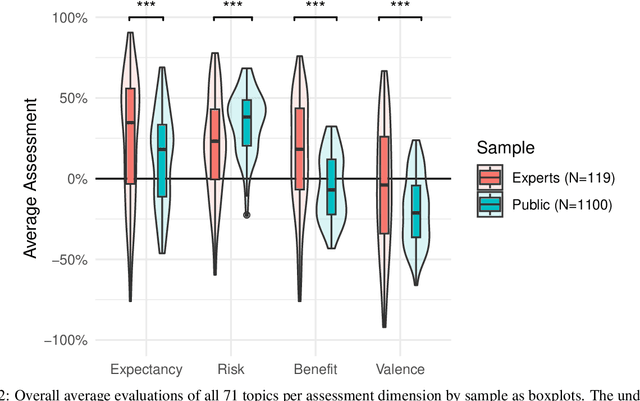Misalignments in AI Perception: Quantitative Findings and Visual Mapping of How Experts and the Public Differ in Expectations and Risks, Benefits, and Value Judgments
Paper and Code
Dec 02, 2024



Artificial Intelligence (AI) is transforming diverse societal domains, raising critical questions about its risks and benefits and the misalignments between public expectations and academic visions. This study examines how the general public (N=1110) -- people using or being affected by AI -- and academic AI experts (N=119) -- people shaping AI development -- perceive AI's capabilities and impact across 71 scenarios, including sustainability, healthcare, job performance, societal divides, art, and warfare. Participants evaluated each scenario on four dimensions: expected probability, perceived risk and benefit, and overall sentiment (or value). The findings reveal significant quantitative differences: experts anticipate higher probabilities, perceive lower risks, report greater utility, and express more favorable sentiment toward AI compared to the non-experts. Notably, risk-benefit tradeoffs differ: the public assigns risk half the weight of benefits, while experts assign it only a third. Visual maps of these evaluations highlight areas of convergence and divergence, identifying potential sources of public concern. These insights offer actionable guidance for researchers and policymakers to align AI development with societal values, fostering public trust and informed governance.
 Add to Chrome
Add to Chrome Add to Firefox
Add to Firefox Add to Edge
Add to Edge